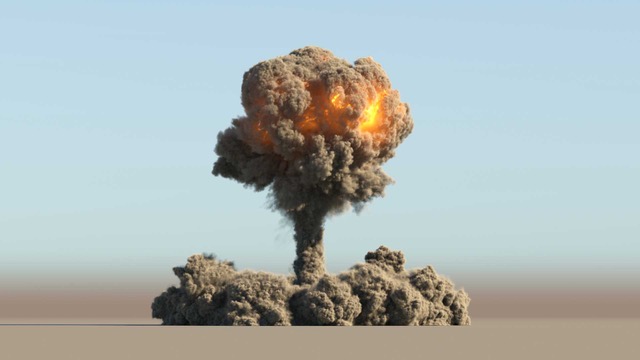War has been a part of humanity since the beginning of civilization. We fight wars over water, land, spices, resources, and most importantly, energy. However, people often don’t pay much attention to where their energy comes from. They don’t see that its influence and contribution to war and national security are incredibly significant and impact everyone’s daily lives.
Before modern energy, wars were fought on a much smaller scale. People were more restricted by geography and weather, so wars had to be fought during the spring for the soldiers to make it to battle. Men on horseback or foot would combat face to face with swords and other short-range weapons. In the most large-scale situations, cannons would be used to attack from a distance. In the end, the closer space required to fight meant that wars were much less destructive than today and caused death on a much smaller scale.
Increased power and larger-scale destruction are needed to combat an enemy you can’t always see. Modern energy allowed armies to create machines and weapons that could attack from a much greater distance. This was first seen on a large scale during World War I through tanks, machine guns, and aerial strikes. In more recent warfare, modern technology allows armies to attack through unmanned drones, lasers, and satellite spying. The distance created by these new inventions helped keep soldiers a little farther from direct contact with the enemy. Consequently, creating an environment in which soldiers can attack without being physically close to the opposition.
This creates a cycle in which innovation fuels wars, and war fuels the need for innovation. New technology must be continually developed, and improvements must be consistently made to maintain the upper hand. All of this requires enormous amounts of energy. The production of metals to make weapons, planes, vehicles, computers, and drones require electricity, water, and fossil fuels. Feeding, housing, and transporting soldiers require energy all the same.
Energy creates wealth, prosperity, security, and health in our communities. It is essential to our modern-day life, making it something we can use not only to protect ourselves but also as an incentive to go to battle in the first place. This is especially the case for limited resources like oil and natural gas. The importance of resources like oil has made many leaders realize that one of the most effective ways to impede a nation’s ability to fight and defend itself is to attack and limit its access to energy resources.
The days of hand-to-hand combat are long gone. Heavy reliance on foreign nations for natural resources has led to conflict time and time again. A nation’s security relies on its ability to depend on its own energy. The diversification of energy resources, that’s to say, the use of a combination of solar, water, fossil fuels, etc., instead of complete reliance on one form of energy, can make a considerable difference regarding security. Additionally, the diversification of resources creates a much more sustainable system in which the nation can operate at a much more efficient level, and the environmental impact is reduced.
In the end, energy is tied to everything. It provides us with our modern-day life and economy, facilitates the health and education of our populations, and has proven to be something worth fighting for. It is something we must use wisely and protect. The US military works hard to use its energy resources carefully and efficiently to maintain the nation’s security. The civilians of a country should strive to do the same. Becoming a smarter energy consumer and making an effort to live a greener lifestyle should be a priority always.
To learn more about the connection between war and energy, check out Power Trip: The Story of Every’s WAR episode along with the OVEE panel energy and war discussion on Smart Energy Education,
Additional resources surrounding energy, sustainability and energy careers can be found on Smart Energy Education, Resourcefulness, and the Watt Watchers of Texas! And don’t forget to follow the Smart Energy Education Facebook page for updates on all our projects, scholarship opportunities, blog posts and more!


